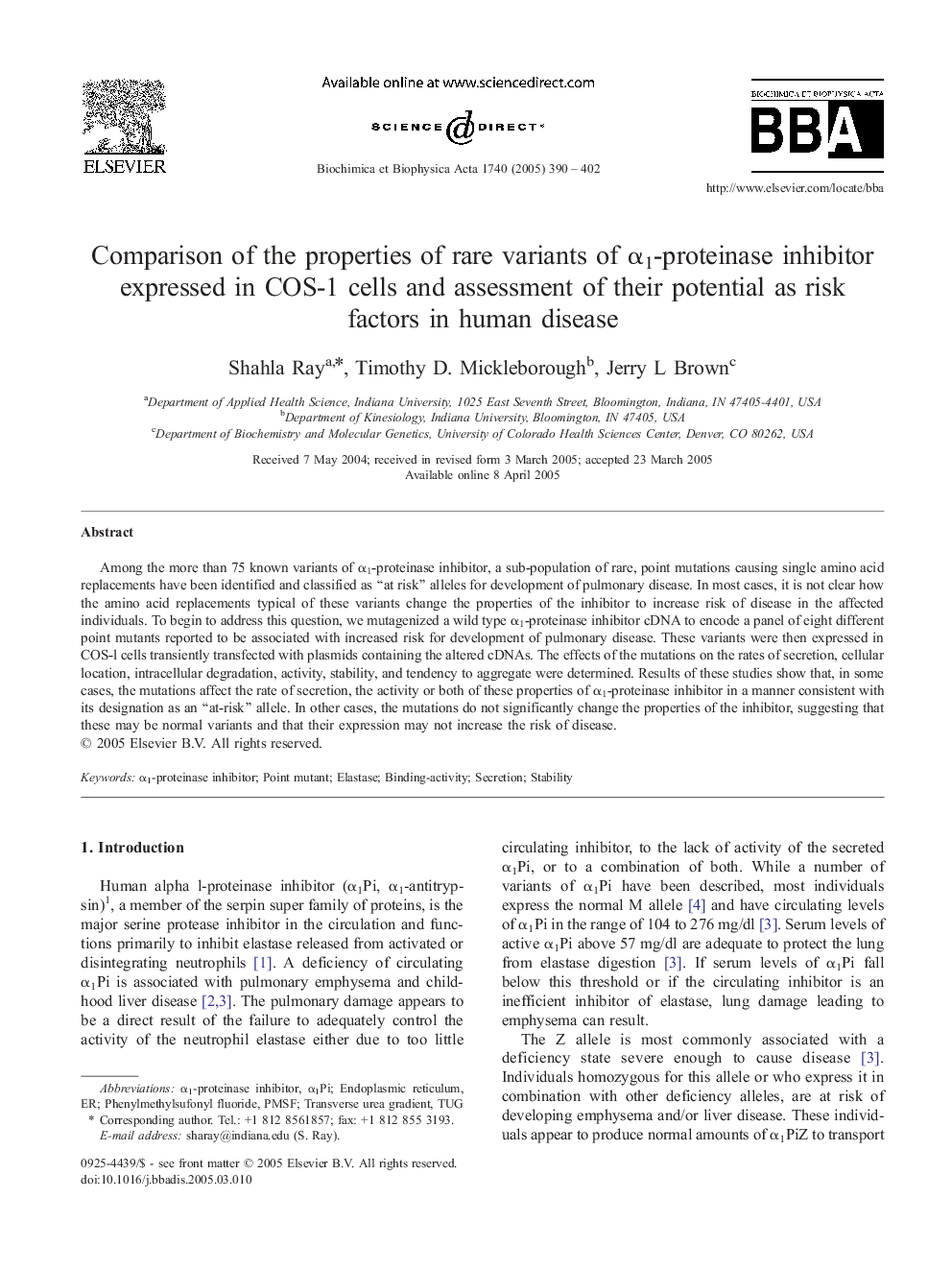| Article ID | Journal | Published Year | Pages | File Type |
|---|---|---|---|---|
| 9879450 | Biochimica et Biophysica Acta (BBA) - Molecular Basis of Disease | 2005 | 13 Pages |
Abstract
Among the more than 75 known variants of α1-proteinase inhibitor, a sub-population of rare, point mutations causing single amino acid replacements have been identified and classified as “at risk” alleles for development of pulmonary disease. In most cases, it is not clear how the amino acid replacements typical of these variants change the properties of the inhibitor to increase risk of disease in the affected individuals. To begin to address this question, we mutagenized a wild type α1-proteinase inhibitor cDNA to encode a panel of eight different point mutants reported to be associated with increased risk for development of pulmonary disease. These variants were then expressed in COS-l cells transiently transfected with plasmids containing the altered cDNAs. The effects of the mutations on the rates of secretion, cellular location, intracellular degradation, activity, stability, and tendency to aggregate were determined. Results of these studies show that, in some cases, the mutations affect the rate of secretion, the activity or both of these properties of α1-proteinase inhibitor in a manner consistent with its designation as an “at-risk” allele. In other cases, the mutations do not significantly change the properties of the inhibitor, suggesting that these may be normal variants and that their expression may not increase the risk of disease.
Keywords
Related Topics
Life Sciences
Biochemistry, Genetics and Molecular Biology
Ageing
Authors
Shahla Ray, Timothy D. Mickleborough, Jerry L Brown,
